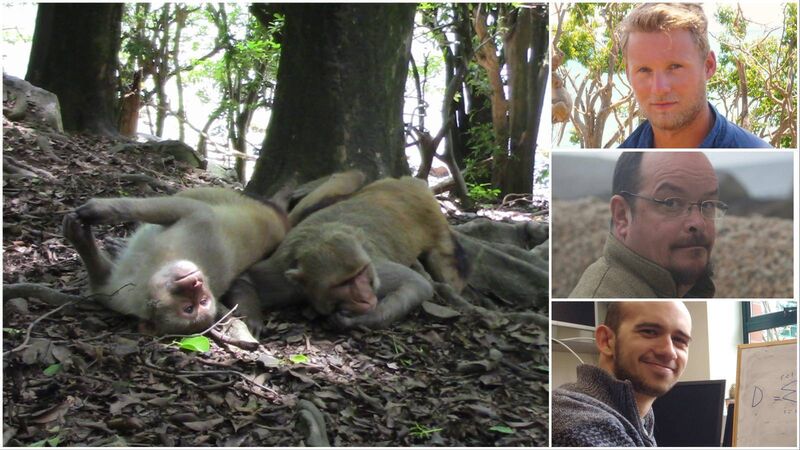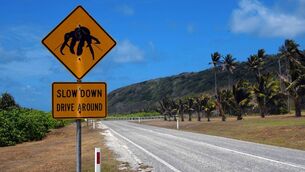Richard Collins: Why do same-sex liaisons occur among animals?

Two male Rhesus Macaques. Bisexual behaviour among male monkeys is widespread and may be beneficial to them, new research suggests. The Imperial College London researchers, [top right: Jackson Clive; centre right: Vincent Savolainen. Professor of Organismic Biology at Imperial; lower right: Ewan Flintham] say their findings challenge the beliefs of some that SSB is a rare behaviour in non-human animals or solely the product of unusual environmental conditions. Picture: Jackson Clive/Imperial College London
A mute swan nest, in County Clare during the 1980s, was said to contain 15 infertile eggs. Two females taking turns incubating them were probably lesbians.
According to the ‘Darwinian paradox’, genes which don’t promote reproduction won’t survive. No offspring can issue from homosexual relationships. Why, then, do same-sex liaisons occur among animals? One suggestion is that such encounters don’t take place at all, reported cases being unnatural aberrations, behavioural malfunctions in artificial situations. But are they?








